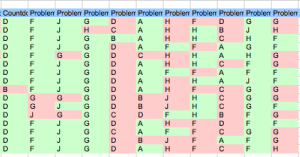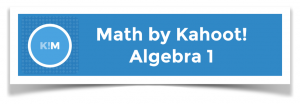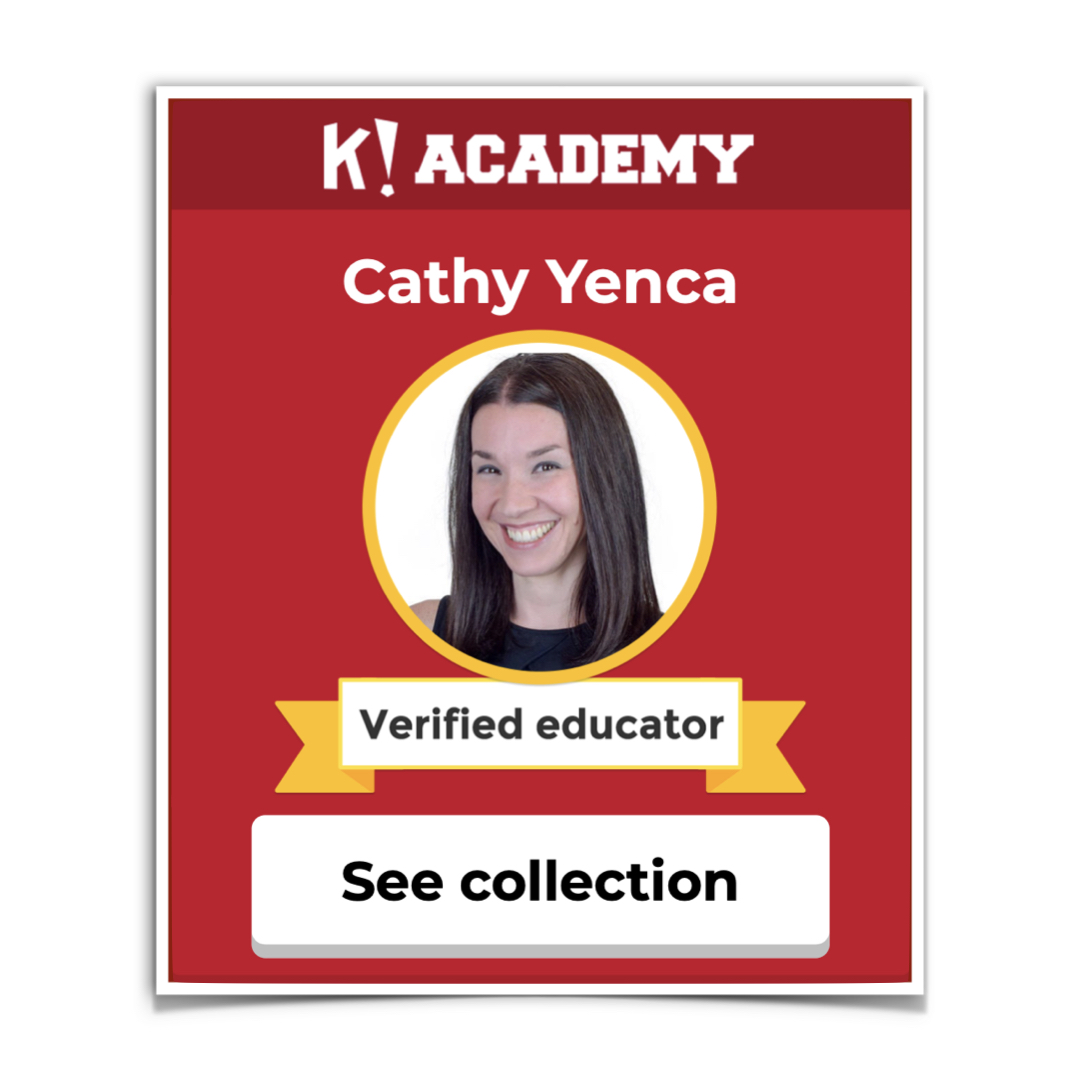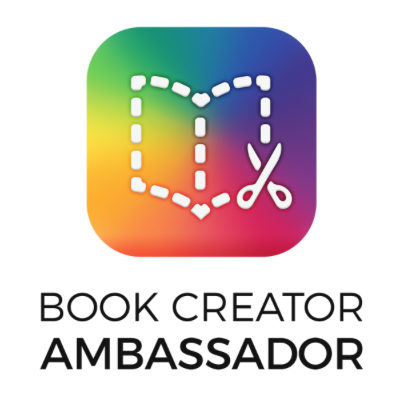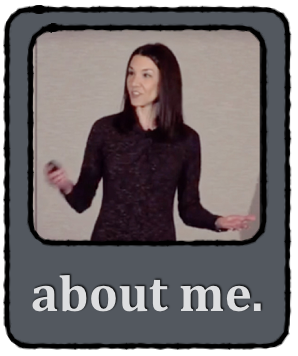I decided to mix things up – homework had been building up and I wanted instant feedback on how my students were doing. I used Socrative as a tool to instantly “spot check” student work. I chose several problems from each of several assignments. Using Socrative, students had to simply choose the answer (from my multiple choice format) that matched the solution they got on their homework.
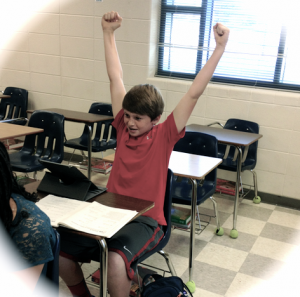
The reactions of the students as they were held accountable in this way were, in one word… emotional! They really felt a new level of pressure!
“This is not good for my health!”
“This is INTENSE!”
I stood at the back of my classroom, watching students’ iPad screens, hoping to see a recurring green stripe (you’re right!) rather than the dreaded red one (you’re wrong!) Socrative gives feedback for each question immediately after students choose their response. One young man nearly fell out of his desk in celebration as he chose the correct solution time and again… fists in the air, celebrating each small victory.
At the end of the quiz, I included two short-answer questions to the tune of… how do you think you did on this quiz? And, do you have any questions?
After all students had finished, I directed Socrative to send me a report in an e-mail. I projected the report to the class within minutes (student names omitted) and we analyzed student performance (nicely color-coded such that green means correct and the dreaded pink means incorrect). We then compared our pinks and greens to the students’ responses about the quiz.
For my Algebra students, they nailed it. Lots of green for content from lessons 3-1 and 3-2, but lesson 3-3 had some pink creeping in. Student comments and questions acknowledged the weaknesses of this content, and I was proud of their reflection! Several students knew what they didn’t know, and even asked appropriate questions! For anyone reading this who has taught middle schoolers, you KNOW this is a big deal!
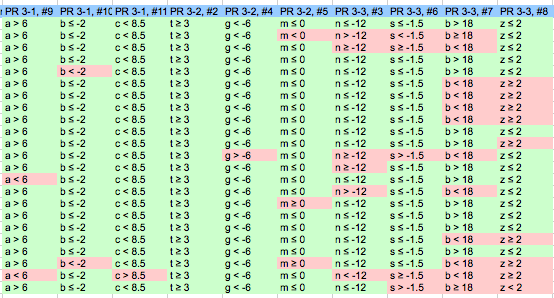
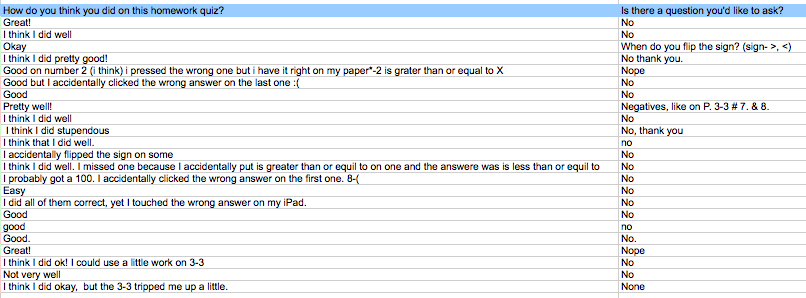
In my Pre-Algebra classes, I felt a disconnect between student performance and questions/reflections. On some problems, nearly the entire class was incorrect! Yet, when asked if they had any questions they’d like to ask, they had none. I was clear in pointing out this discrepancy to these students, and plan to 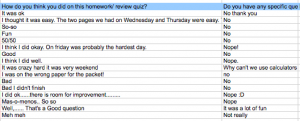 sneak the “pinkest” problems into warm-ups to readdress the skills. In their defense, several students did express that they thought they did poorly, but that was the end of it. Perhaps it was the excitement of using the app that overtook the desire to reflect or ask questions… or maybe these folks don’t know what they don’t know… an ongoing dilemma I see and face as a middle school teacher. (Note the title of all of the pink columns… you guessed it! “Problem Solving”!) All in all, there was no question about whether students were actively engaged, and I plan to do this again! It was equally informative for my students as it was for me.
sneak the “pinkest” problems into warm-ups to readdress the skills. In their defense, several students did express that they thought they did poorly, but that was the end of it. Perhaps it was the excitement of using the app that overtook the desire to reflect or ask questions… or maybe these folks don’t know what they don’t know… an ongoing dilemma I see and face as a middle school teacher. (Note the title of all of the pink columns… you guessed it! “Problem Solving”!) All in all, there was no question about whether students were actively engaged, and I plan to do this again! It was equally informative for my students as it was for me.

